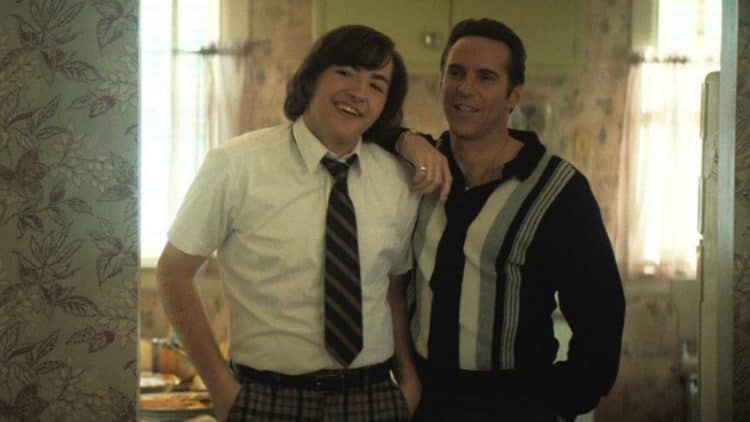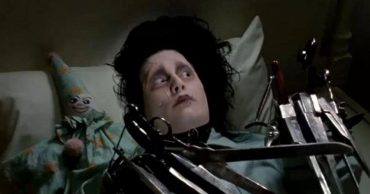
For the first time in over ten years, David Chase returns to the world of The Sopranos with the prequel, The Many Saints of Newark, which was originally advertised as a film that followed the rise of Tony Soprano. In reality, the movie is about young Anthony Soprano and the all-powerful DiMeo crime family and their war against rival gangsters. Let me make this clear, I’ve never watched The Sopranos television show, so this review is coming from the perspective of an outsider. I understand the core characters of the iconic series and I heard plenty about the series finale, but my knowledge regarding Tony Soprano is very limited. The good news is, The Many Saints of Newark has made me want to dive into the full series altogether. The bad news? It’s nothing more than the typical gangster film that you’ve seen numerous times. It doesn’t reach the heights of Goodfellas, The Godfather, or Casino, as the film predictably takes the path you expect it to. The Many Saints of Newark is by no means a bad film. It is genuinely good and engrossing, and I’m curious to see more of Tony Soprano. Unfortunately, it’s not a picture that you’ll remember in five years’ time.
First, advertising this as the rise of Tony Soprano was a mistake. He’s never prominently featured in the movie, with the simple reasoning being due to his ties to the DiMeo crime family. The feature gives off the laziest reasoning that Tony Soprano becomes Tony Soprano. We never truly get into the psyche of the young kid, nor focus on him entirely. We understand Tony’s motivation and why he becomes the boss, but The Many Saints Of Newark would’ve been better off if they didn’t promise that this was his story. Why is Tony so compelled to be in a world full of criminals? Why does he look up to Uncle Dickie so much? Going back to Goodfellas, we understand why Henry Hill wants to be a gangster so badly; He loves the lavish lifestyle and power that these men possessed over their neighborhood. The Many Saints of Newark fails to explain why young Tony is so enamored with the lifestyle.
Still, Michael Gandolfini is great at what he’s given and it’s a shame that this film decides to put him in the backseat. The brief glimpses of his home life are intriguing, especially his mother, who clearly doesn’t see a bright future for her son. In some respects, I can understand the reasoning behind not making Tony the lead. Since audiences know that Tony Sopranos grows up and leads the powerful crime family, any sense of danger that comes his way will lack any tension. It’s a tricky balance to do these prequels with legendary characters, especially one that is so steeped in a violent culture. Of course, I did say that this was a good film and the story of Anthony Soprano is a compelling one. I do wish that we got more context regarding the relationship between him and his father, Salvatore “Sally” Moltisanti. Their history is mostly glossed up thanks to exposition and Moltisanti dies before we truly get to know him. Don’t get me wrong, we understand that he’s a douchebag with power, but a little more exploration of his world would’ve made his death feel more important. It’s still a treat to see Ray Liotti back into this type of world and not surprisingly, he does pretty well with the roles he’s given. Is he Henry Hill good? No, but that’s only because Hill had more meat and substance to it.
Alessandro Nivola carries himself well as Dickie and is easily the star here. While his character doesn’t particularly stand out as anything different in the gangster genre, his charisma and presence help carry the film. His dynamic with Leslie Odom Jr.’s Harold McBrayer is an interesting one, and again, this is another aspect of the film that should’ve been explored further. The central conflict comes from McBrayer’s disdain for working for Dickie, so deep detail into their history would’ve helped us understand why he hates him so much. I know that I ask for the film to dive deeper into many different aspects; however, The Many Saints of Newark feels trapped under The Sopranos lore. This was supposed to be a film about Tony Soprano, but its not; however, the movie has to make sure that the young Soprano is a prominent point of the movie. The Many Saints of Newark gives off enough juice to produce a good story, but it could’ve been truly great without the need to follow some arcs of Tony Soprano. The rivalry between the DiMeo crime family and McBrayer’s gang is compelling stuff, especially since it’s an African American gang in the 70s. I know this article has been mainly critical of The Many Saints of Newark, but that’s due to the fact that the ideas presented have stronger potential. If you’re not steeped into the Sopranos culture then it’s still a good watch, just don’t expect anything more than that.
 Follow Us
Follow Us





